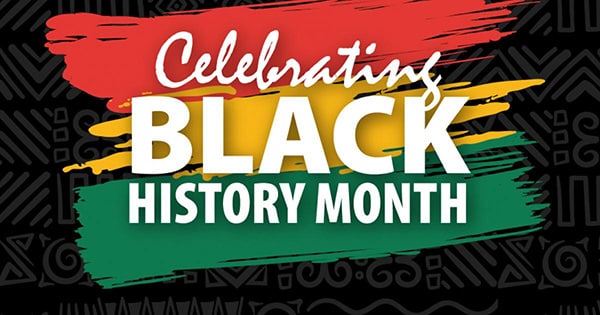FTJ Celebrates Black History Month

At Franke Tobey Jones, across campus and at our three Senior Centers, we will be focusing on Black History Month at Senior University, Activities and in Memory Care. Some of these classes include programs about black athletes, the Harlem renaissance, a performance with works focusing on the composer Duke Ellington, Underrepresented Artists Lecture Series focusing on some African American artists, classes about the Buffalo Soldiers, African Attire and Soul Food, a history and celebration of black history month and we’ll be showing movies, featuring prominent individuals in black history. Check out the various Senior Center and Senior University calendars in this newsletter.
History of Black History Month
Black History Month is an annual observance originating in the United States, where it is also known as African American History Month. It has received official recognition from governments in the United States and Canada, and more recently has been observed unofficially in Ireland, the Netherlands and the United Kingdom. It began as a way of remembering and celebrating the achievements of African Americans and a time to recognize their central role in U.S. It is celebrated in February in the United States and Canada, while in Ireland, the Netherlands and the United Kingdom it is observed in October. many college campuses.
The precursor to Black History Month was Negro History Week, which was established in February 1926 by African American historian Carter G. Woodson and the Association for the Study of Negro Life and History. They chose the second week of February because it coincided with the birthdays of Abraham Lincoln and Frederick Douglass, two key figures in the history of African Americans. By the late 1960s, thanks in part to the civil rights movement and a growing awareness of black identity, Negro History Week had evolved into Black History Month on many college campuses. In 1976, President Gerald Ford officially recognized Black History Month calling upon the public to “seize the opportunity to honor the too-often neglected accomplishments of Black Americans in every area of endeavor throughout our history.”
Black History Month is a time to celebrate the many contributions of African Americans to American society. Some of the most notable achievements include:
- The Civil Rights Movement, which led to the end of segregation and discrimination against African Americans
- The election of Barack Obama as the first African American president of the United States
- The contributions of African Americans to the arts, sciences, and business
Black History Month is a time to reflect on the contributions and achievements of African Americans, as well as a time to recognize the central role blacks have played in U.S. history. It’s an opportunity to engage in dialogue about race and equality, and to promote an understanding and appreciation of Black history in general.
Black History Month is also a time to reflect on the challenges that African Americans still face. The United States has made great strides in racial equality, but there is still much work to be done. We must continue to work to create a society where everyone has the opportunity to succeed, regardless of their race or ethnicity. It is important to remember that Black history is not just about the past. It is also about the present and the future. We must continue to learn from the past and work to create a brighter future for all.
Here are three wonderful and lesser-known quotes from the great Martin Luther King Jr.
From his 1963 book, “Strength to Love:”
- “Darkness cannot drive out darkness, only light can do that. Hate cannot drive out hate, only love can do that.”
From his 1964 Nobel Peace Prize acceptance speech:
- “The beauty of genuine brotherhood and peace is more precious than diamonds or silver or gold.”
- “If this is to be achieved, man must evolve for all human conflict a method which rejects revenge, aggression and retaliation. The foundation of such a method is love.”
From his speech before a group of students at Barratt Junior High School, October 26, 1967:
- “Be a bush if you can’t be a tree. If you can’t be a highway, just be a trail. If you can’t be a sun, be a star. For it isn’t by size that you win or fail. Be the best of whatever you are.”
![Franke Tobey Jones [logo]](https://www.franketobeyjones.com/wp-content/themes/franktobyjones2017/images/logo.png)